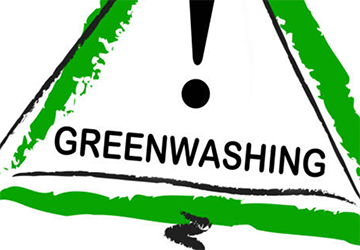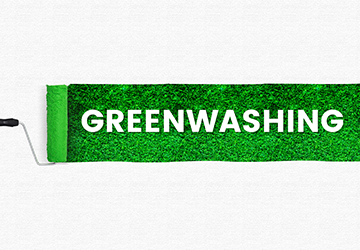7 Warning Signs of Greenwashing in Beauty Products
Eco-friendly beauty products have become increasingly popular in recent years due to heightened awareness of the impact of human activities on the natural environment.
However, there is often confusion surrounding these products because not all companies that promote 'green products' are truthful.
Greenwashing makes consumers believe that a product is environmentally friendly, even if the information is false or exaggerated.

Making informed choices is crucial to ensuring that genuine sustainable efforts are made and followed through in the beauty industry.
This blog post will provide insight into the seven red flags in beauty products that signal greenwashing.
Awareness of these signs will help you decide about your beauty treatments.
Why Recognizing Greenwashing is Important?
As the world moves towards a more environmentally conscious future, attention must be paid to addressing greenwashing in the beauty sector.
This type of deceptive marketing tricks customers and thus harms them, and hinders authentically environmentally conscious businesses.
Greenwashing is when a firm supports a particular product through untrue or misleading claims about its environmental effects.
This becomes especially appealing to customers because it makes them feel like they are making an environmentally conscious decision when, in actuality, the products they are buying are less eco-friendly than they seem.
By being aware of greenwashing, the consumer should be able to make the right decisions and even support companies that are serious about sustainability.
This, in turn, will make more firms embrace environmentally friendly policies and processes, hence decreasing the raw impacts of the beauty production segment.
7 Warning Signs of Greenwashing in Beauty Products
Now, let us examine seven methods for identifying this deceptive process in beauty products. The following are some of the signs that you should look out for.
By noticing these signs, you will be better positioned to make better choices leading to sustainable living.
Sign 1: Vague or Undefined Terms
The most effective way of greenwashing is to use words like 'natural, 'eco,' 'green,' etc. These words signify something with proper definitions or specific standards backing them up.
However, if you want to be highly cautious, ensure it has a specific accreditation like USDA Organic or Ecocert. Third-party certifications offer a better evaluation of a product's sustainability.
Avoid using products that have eco-friendly terms as their tagline but fail to explain their meanings; this is the case, especially with sustainable brands, which will always provide details on their ingredients, where they source them, and how they process the products.
Sign 2: Lack of Transparency
The transparency of cosmetic brands and their products is crucial to meeting the requirements of sustainable beauty.
Most greenwashing brands need more information about their products' components, where they source raw materials, and how they produce them, which makes it difficult for consumers to check the veracity of their claims.
Sustainable brands are usually transparent in the information they provide, or rather, the information they give out is generally accurate. They include a detailed list of ingredients and indicate where they are obtained and how they affect the environment in the manufacturing process.
So, if a brand is unclear or mysterious about its activities, its packaging may be a sign of greenwashing. When choosing a brand or organization, try to find those not hiding that they are working on sustainability.
Sign 3: Misleading Labels and Imagery
These brands give an impression of sustainability by labelling and portraying their products in a certain way. They might use green as a primary colour, depict nature, or use any other symbol associated with being environmentally friendly without necessarily providing evidence to back this up.
Despite these attractive features, there is still more to be seen than what meets the eye on the packaging. It is also important to note that some products may use green hues and other representations of nature to give a more environmentally conscious look and feel, but no substance exists.

However, one should still pay attention to the environmental benefits of the companies' products and services. Aesthetics will not sway authentic, sustainable brands; instead, focus on posting facts.
Sign 4: Exaggerated Claims
Another sign that a product is greenwashed is misleading headlines or exaggerated promises about the environmental advantages of the product; this is where some brands may come up with very flowery-sounding claims about their sustainability but offer little proof to back them up.
This principle goes well with the statement, 'If something seems too good to be true, it probably is.' Only trust those brands that claim to be the best by generalizing and providing enough evidence to support their claims.
Intentionally sustainable brands offer practical assertions that can be supported by evidence. They will more often than not have third-party referrals or scientific proof to back up the claims they make.
It is always advisable to compare a company's statements with the contents of its products or the practices it follows.
Sign 5: Small Green Initiatives Overemphasized
Some brands may build their marketing strategies around small eco-friendly gestures while failing to address other more significant problems.
For instance, a firm may boast of having biodegradable packaging for its products while using dangerous chemicals or buying from a company that exploits workers.
Check out brands with better sustainable policies to avoid being trapped in this greenwashing technique. Authentic sustainability brands do not consider environmental protection an extra but incorporate it into business strategies.
This is why brands must avoid focusing only on the minor aspects of being green while overlooking the bigger picture. Sustainability must be embodied across the brand organization in every case.
Sign 6: Use of Non-Sustainable Ingredients
Non-sustainably sourced ingredients are often a paradox to a brand's perceived environmentally friendly image.
Greenwashing brands may sell products with labels and advertisements that reflect them as being environmentally friendly; they may contain dangerous chemicals or are made of materials that are harvested in an unsustainable manner.
To stay out of this trap, focus on the elements used when selecting beauty products to buy. Eschew products with notorious chemicals, including parabens, sulfates, and phthalates, are environmentally and healthwise hazardous to your well-being.
Instead, they should look for brands that use only sustainable and natural products. Authentic, sustainable brands will not hide anything about the ingredients used; most come with certificates to support their innovations.
Sign 7: No Third-Party Certifications
Since third-party certifications are essential for reassuring buyers that a company's products and services are genuinely sustainable, governments and businesses must invest more effort in developing them.
Greenwashing brands do not have credible endorsements that often support their claims but tend to make them up themselves.
Consider USDA Organic, Fair Trade, and Ecocert to support green products and goods.
These certifications are issued by third parties to confirm that a brand adheres to environmental conservation.
The other problem is when brands make sustainability claims without proof that third parties have audited them. Employ certifications as a benchmark of serious sustainability efforts.
Start Making Informed Beauty Choices Today
With these seven warning signs of greenwashing in mind, you can now be more thoughtful about choosing which beauty products to use on your face, hair, or body. So, do not wait until it is too late to apply this knowledge to real life – begin doing it today!
Each time you opt for a truly sustainable product instead of one that 'looks green,' you are helping out companies that are working on the betterment of the planet.
Join the legion of aware customers who have already improved the world of cosmetics.
Feel the difference between having all the knowledge and making the right choice for your beauty. Let's embrace sustainable beauty today!